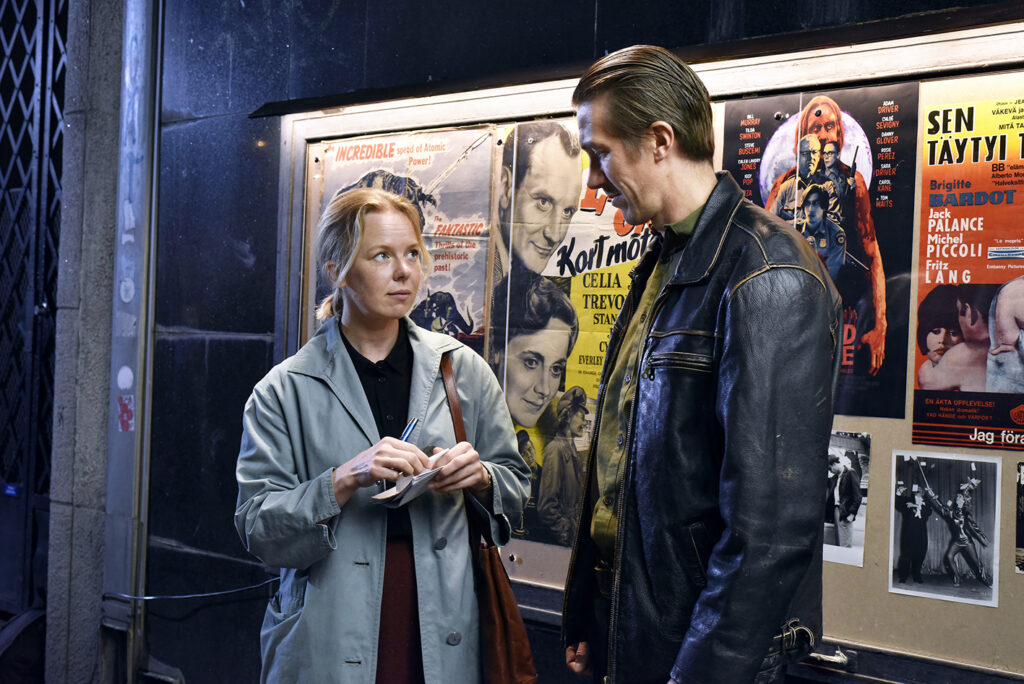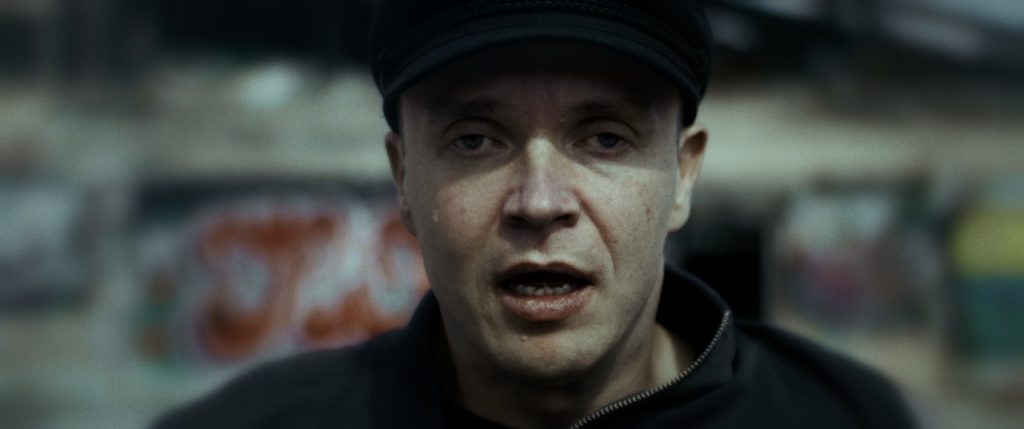
The Finnish deadpan comedy Fallen Leaves is the story of two fortyish singles navigating a blue collar world that is filled with disappointment, despite low expectations. We first meet the no-nonsense Ansa (Alma Pöysti) working in a supermarket, and then the sarcastic loner Holappa (Jussi Vatanen), working in a metal scrap yard. Fallen Leaves depicts Finnish middle-managers as tyrannical idiots, so neither Ansa or Holappa get any satisfaction from their work. Neither has much of social life, although they spot each other when accompanying friends to a karaoke bar.
These are two lonely people. But, not only don’t Ansa and Holappa meet CUTE, they keep not meeting AT ALL. Holappa’s shyness precludes an introduction at the karaoke bar, and then happenstance (and Holappa’s drinking) make them keeping missing each other, until a promising encounter is frustrated again.
We know that eventually, Ansa and Holappa will find the opportunity to launch a relationship. The impediment will be Holappa’s alcoholism. Here’s a public service from the Movie Gourmet: If you answer two or more of the following questions in he affirmative, then it is likely you have a problem with alcohol:
- Have you been fired more than once for drinking on the job?
- Have you passed out at a bus stop?
- Do you regularly order three shots with a beer chaser?
- Does a bartender tell you “[insert your name}, It’s time to go home so you can come back in the morning“?
Writer-director Aki Kaurismäki creates a humorously grim world for our droll heros and their pals. The dreariest of soulless dive bars, with the barmaid in curlers, is aspirationally named the California Pub. Holappa’s buddy tells him that he is no tough guy, “but maybe you could be a tough guy in Denmark”. Kaurismäki fills the screen with lots of Finns standing very still.
Fallen Leaves is not a Must See, I but I enjoyed the yearning for connection and intimacy, framed in the driest of humor. Many critics have describe the film as bittersweet; I see it as film with humor that is bitter-tinged, and then ultimately purely sweet.



